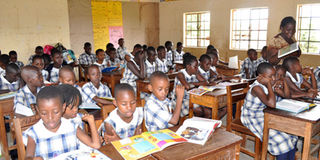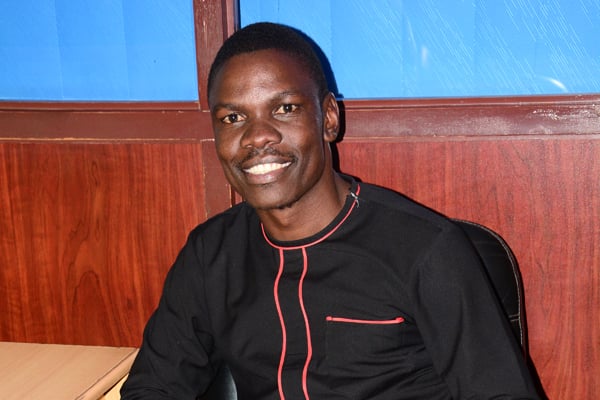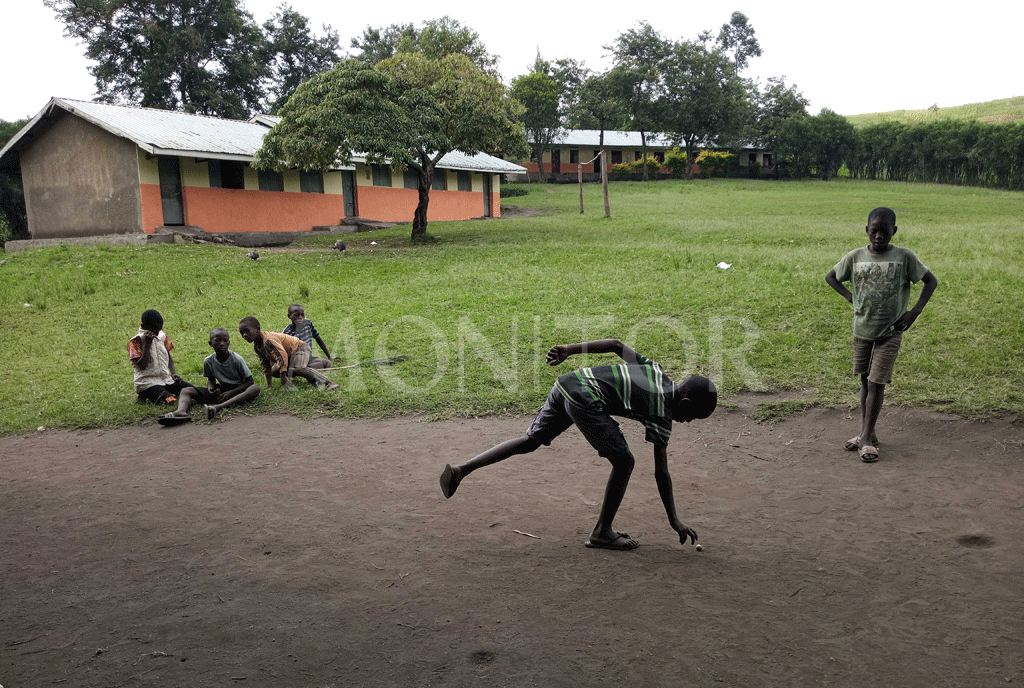Prime
New report reveals 60% primary pupils can’t read

Literacy. Pupils with reading materials in class being guided by their teacher during the Booking Reading Day in 2018. PHOTO | FILE
What you need to know:
- This means that a whopping 60.5 percent of the children in the upper primary cannot read competently. The report compiled last year by the Education ministry during a research on the introduction of the competence-based method of education also revealed that only about 11.6 percent of the children in lower primary could read.
A 2021 Uwezo report has revealed that although school enrollment has increased to 8.5 million people, only 39.5 percent of school children from Primary Three to Primary Seven have the required competence in reading.
This means that a whopping 60.5 percent of the children in the upper primary cannot read competently. The report compiled last year by the Education ministry during a research on the introduction of the competence-based method of education also revealed that only about 11.6 percent of the children in lower primary could read.
The Uwezo report was presented by Dr Cleophas Mugenyi, the commissioner of basic education department in the ministry, during a consortium meeting aimed at introducing the playful learning system as a solution.
The education system report also established a drastic drop in the completion rate of children, indicating that only three out of 10 pupils who start the first year of primary education (Primary One) reach the final year of primary education (Primary Seven). The report attributes this to lack of pre-primary education.
“Only one out of five children access pre-primary education. About 62 percent of parents do not enrol children into pre-primary. The transition rate from primary to secondary education has declined from 72 percent in 2013 to 61 percent in 2017. Those with low income attend half as much as those with higher income,” the report states in part.
The report also noted an improvement in equitable access and inclusive relevant learning opportunities for children in refugee and host communities at primary from 58 percent to 73 percent to 88 percent and Early Childhood Care and Education (ECCE) from 35 percent to 48 percent over the past four years between 2018 and 2021.
In her submission during the meeting, which brought together experts from Uganda, Tanzania and Ethiopia at Speke Resort Munyonyo on Friday, Ms Ketty Lamaro—the Education ministry Permanent Secretary—welcomed the suggestions of technocrats to introduce a playful learning methodology.
“Playful learning is the way to go because it helps the children improve on their competences holistically and we hope that IRC (International Rescue Comminitttee) together with other partners help government achieve this dream of introducing the PlayMatters project that is long overdue,” she said.
In late 2020 through early 2021, the PlayMatters project was officially launched in Ethiopia, Tanzania and Uganda in events that were attended by high-ranking officials in the Education ministries of the three countries. The officials pledged support and commitment to the project.
Since then, the project has established and deepened relationships with various government institutions and structures in the three countries through formal working relationships for collaborative project engagement.
In Uganda, the project has been introduced in nine districts that host refugees. This has been done as a pilot study to establish the effectiveness of the methodology. The districts in question include Isingiro, Kikuube, Terego, Madiokolo, Obongi Kyegegwa, Lamwo, Adjumani and Yumbe.
Technocrats say that once grasped by the host communities, the project will be enrolled in the 23 primary teacher’s colleges across the country so that the teachers can be trained on the same.
Mr Joseph Opondo, the deputy project coordinator of PlayMatters Ug, said that the line ministries and departments have since nurtured robust working modalities through committees. The committees are technically guiding the project in developing resources to promote the integration of learning through play in refugee and host community schools, homes, communities in addition to collaboration in other areas of project delivery.
“This kind of learning will change the system from taking notes and answering questions for the sake of engaging the children holistically. Right now even teachers’ trainings are based on theoretical kind of learning and when the children play, there is no intention of learning out of the play,” Mr Opondo said.
“The PlayMatters project aims to improve holistic learning and wellbeing outcomes for 800,000+ refugee and host community pre-primary and primary school going children aged 3-12+ in Uganda, Tanzania and Ethiopia using learning through play methodologies,” he added.





